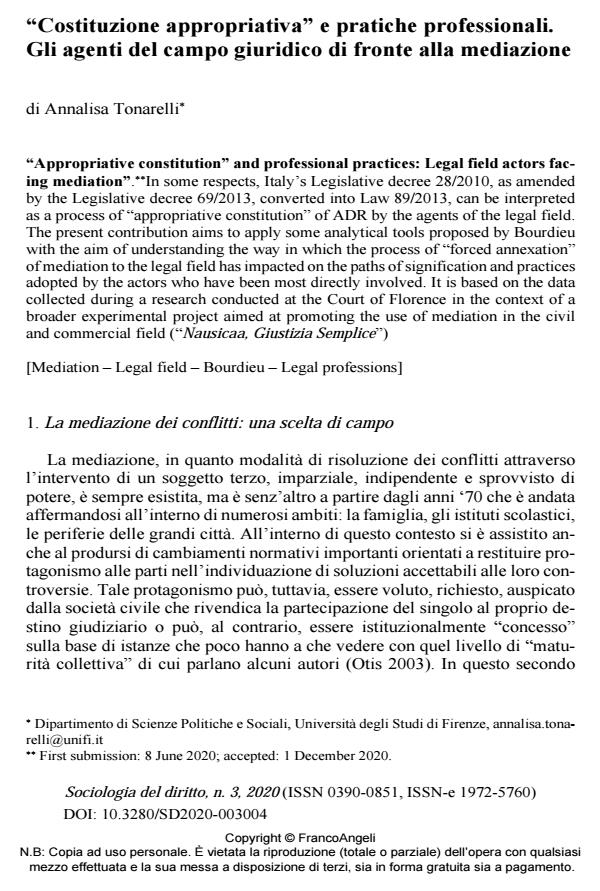"Appropriative constitution" and professional practices: Legal field actors facing mediation.
Journal title SOCIOLOGIA DEL DIRITTO
Author/s Annalisa Tonarelli
Publishing Year 2021 Issue 2020/3
Language Italian Pages 22 P. 69-90 File size 250 KB
DOI 10.3280/SD2020-003004
DOI is like a bar code for intellectual property: to have more infomation
click here
Below, you can see the article first page
If you want to buy this article in PDF format, you can do it, following the instructions to buy download credits

FrancoAngeli is member of Publishers International Linking Association, Inc (PILA), a not-for-profit association which run the CrossRef service enabling links to and from online scholarly content.
In some respects, Italy’s Legislative decree 28/2010, as amended by the Legisla-tive decree 69/2013, converted into Law 89/2013, can be interpreted as a process of "appropriative constitution" of ADR by the agents of the legal field. The present contribution aims to apply some analytical tools proposed by Bourdieu with the aim of understanding the way in which the process of "forced annexation" of me-diation to the legal field has impacted on the paths of signification and practices adopted by the actors who have been most directly involved. It is based on the da-ta collected during a research conducted at the Court of Florence in the context of a broader experimental project aimed at promoting the use of mediation in the civil and commercial field
Keywords: Mediation - Legal field - Bourdieu - Legal professions
Annalisa Tonarelli, "Costituzione appropriativa" e pratiche professionali. Gli agenti del campo giuridico di fronte alla mediazione in "SOCIOLOGIA DEL DIRITTO " 3/2020, pp 69-90, DOI: 10.3280/SD2020-003004